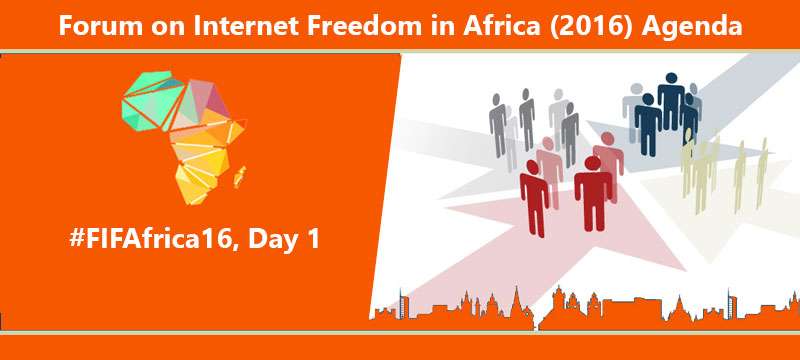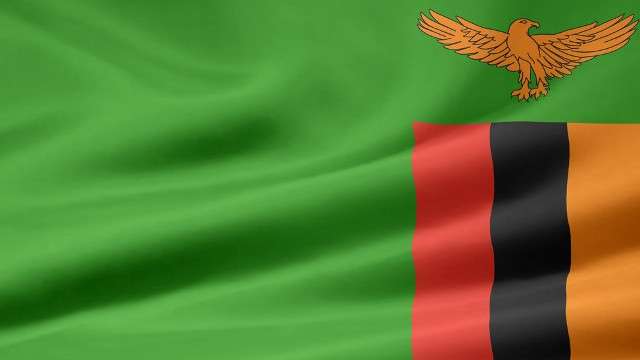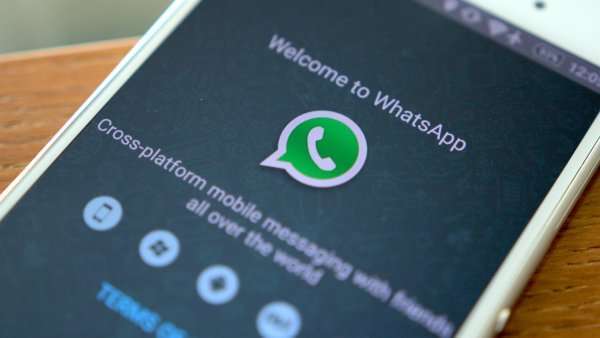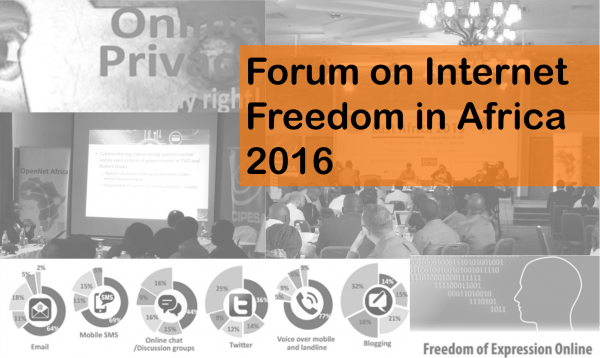
#FIFAfrica16 | See what we have lined up for the Forum on Internet Freedom in Africa 2016. On 27 September there will be a series of closed sessions by invite only while on 28 September the official launch of the Forum will take place.
Cyber Diplomacy with Africa: Lessons From the African Cybersecurity Convention
By Mailyn Fidler |
Two years ago, the African Union (AU) adopted its Convention on Cybersecurity and Personal Data Protection. The Convention seeks to improve how African states address cybercrime, data protection, e-commerce, and cybersecurity. However, only eight of the AU’s fifty-four members have signed the Convention, with none ratifying it. Despite this currently limited uptake, the Convention, and how the AU produced it, signals that African states value political autonomy and independence when developing cyber policy. The U.S. government should keep this in mind as it reaches out to AU member states in promoting cyber norms and capacity building efforts.
Development of the Convention
The AU’s development of the Convention reflects a desire of African states to have autonomy over their response to cyberspace challenges. The AU chose to develop its own Convention instead of promoting African participation in existing cyber treaties, most notably the Council of Europe’s Budapest Convention on Cybercrime (2001). Only one African state, South Africa, participated in the Budapest Convention negotiations, and, even then, had to ask to be included. The Council of Europe approved three other African country requests to accede, a low rate compared to other regions in the global south, and only one African state has ratified it. South Africa has refused to ratify the Budapest Convention because of sovereignty concerns.
Instead, the AU began work on its own approach in 2007. By this time, African states had already started to act as a bloc in international cyber negotiations. For instance, African countries advocated for more equitable access to the Internet and participation in Internet governance during the 2003 and 2005 World Summit on the Information Society (WSIS) – a stance that challenged prevailing Western views.
Read the full article here.
Analysis of the Relationship Between Online Information Controls and Elections in Zambia
By Arthur Gwagwa |
The defining era in Zambia’s current rise in online political and civic activism can be traced back to the period between 2011 and 2013. This is when the late President Sata embraced social media as part of his political and public diplomacy strategy. As the country now prepares for the August 2016 General Elections, government, its agencies, such as the Election Ccommission of Zambia (ECZ), the opposition and civil society are all immersed in social media.
As the country’s August 2016 polls draw nearer, government has recently increased its presence on social media to abet and encourage horizontal flows of information. This is in contrast to vertical flows, where information generated by societal actors is gathered by the government through usage of a range of methods, ranging from “responsiveness” on social media to media monitoring.
This paper explores reports of information controls and filtering of the ruling regime, whose leader, Edgar Lungu, strives to balance the dictates of political survival and his reputation as a lawyer who has previously defended press freedoms. The paper analyses past and current key political events that implicate the relationship between internet-based information controls and elections in Zambia. Finally, the paper extrapolates likely scenarios in the build up to the 2016 General Elections and Constitution Bill of Rights Referendum to be held on 11 August 2016.
Read the full report here.
Zimbabwe Becomes the Latest Country to Shut Down Social Media
By Juliet Nanfuka |
Less than a week after the United Nations (UN) Human Rights Council declared that online rights must be protected and condemned disruptions to internet access, citizens in Zimbabwe became the latest victims of online communications shut down. Authorities in Zimbabwe shut down communications in the wake of protests against rampant corruption and misuse of state funds by Robert Mugabe’s regime, which has been in power since 1980.
Online campaigns initiated by frustrated Zimbabweans using hashtags like #MugabeMustFall and #ThisFlag have gained widespread popularity over the past weeks with the most recent #ZimbabweShutdown and #ZimShutdown2016 gaining momentum while calling for citizens to stay away from work. On Wednesday July 6, many streets in the capital Harare stood empty as the stay-in protest took effect, while online, despite the blockage of the popular instant messaging platform Whatsapp, citizens continued voicing concerns and sharing messages of solidarity. Service providers such as TelOnem, Liquid Telecom Zimbabwe, ZOL Zimbabwe, Telecel and Econet were amongst those who were reportedly pressured into shutting down access, which caused users to turn to circumvention tools in order to bypass the blockage.
Zimbabwe: The Revolution Will Be Hashtagged https://t.co/ztiCfELdeT #Zimbabwe pic.twitter.com/C3pTBYR10R
— allAfrica.com (@allafrica) July 5, 2016
#Zimbabwe's communications regulator has issued this warning which is a direct threat to Digital Freedom.⤵ @SZondi pic.twitter.com/ZlxHQZzzTZ
— levi kabwato (@LeviKabwato) July 6, 2016
A notice issued by the Postal and Telecommunications Regulatory Authority of Zimbabwe (POTRAZ) stated that those who engaged in “irresponsible use of social media and telecommunications services” would be “arrested and dealt with accordingly in the national interest.”
Zimbabwe, which is ranked “partly free” by Freedom House’s Freedom on the Net report, has also over the years recorded dismal media freedom and digital rights records, including crackdown on critics and news outlets both online and offline. In April 2016, a senior government official said the country could take measures similar to China by entirely blocking access to certain content online.
In July 2014, an anonymous whistle-blower Facebook page, “Baba Jukwa”, was deleted under unclear circumstances following the arrest of a journalist for allegedly running the page. A bounty of US$300,000 had earlier reportedly been offered for revealing the name of the person behind the account, while in January 2014, a Facebook user was arrested and charged for sharing a post alleging that the president had died. These actions have cultivated a culture of self-censorship among the Zimbabwean online community.
The UN resolution, which was passed on Wednesday July 1 by 70 states, stresses that human rights enjoyed offline, particularly with regards to freedom of expression, must be protected online pursuant to articles 19 of the Universal Declaration of Human Rights and the International Covenant on Civil and Political Rights. Countries that voted against the resolution included Bolivia, Bangladesh, Burundi, Cuba, China, Russia, Ecuador, India, Indonesia, the Republic of Congo, Kenya, Russian Federation, Saudi Arabia, South Africa, Qatar, United Arab Emirates and Venezuela and Vietnam. Some countries including Algeria, Cote D’Ivoire, Ethiopia, Kyrgyzstan and Togo chose to abstain from voting on the resolution.
The Zimbabwe government’s stance on the use of social media comes as no surprise as an increasing number of shutdowns have been documented in African countries in recent months.
*Whatsapp was restored after four hours of disruption
Announcement: Forum on Internet Freedom in Africa 2016
The Forum on Internet Freedom in Africa is scheduled to take place on September 27–29, 2016 in Kampala, Uganda.
The Forum provides a unique opportunity to deliberate and build a network of supporters of internet freedom in Africa. It brings together a wide range of civic actors such as journalists, bloggers, human rights defenders, and activists, private sector actors such as telecom companies, as well as communication regulators and law enforcement.
In 2015 the Forum assembled panelists from a diversity of backgrounds, which facilitated spirited discussions as captured in this report.
See the 2015 Forum Highlights video
A key highlight at the Forum is the launch of the State of Internet Freedom in Africa report that captures trends on internet freedom in select African countries. The 2016 report will cover the most number of countries so far.
These deliberations come as various African countries witness a slide in online freedom of expression and association, as well as breaches of the rights to privacy and access to information.
Visit the Forum page for more information.





